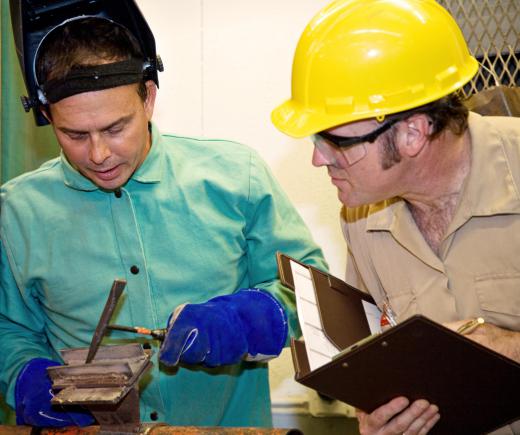A quality assurance manager is responsible for supervising and managing the people who ensure that products and services meet customer expectations before the products go out on the market. He or she is generally ultimately responsible for the quality of the product in all stages of its development, from the factory to the market. Meeting customer expectations also plays a large role in this job.
There are several responsibilities that a QA manager has, although these might vary depending on the company for which he or she works. First, quality assurance managers must set the standards for quality. In other words, the QA manager decides what standards each product must meet. Second, he or she must ensure that the employees, as well as inspectors, understand the standards that have been set. In this regard, communication is very important.

Another responsibility of a quality assurance manager is testing. In this stage, products are tested to make sure that they meet the standards that have been previously set. Finally, QA managers often review customer feedback to see whether the standards that were set were acceptable to the customer and whether the products passed the quality inspections. They also are often responsible to make sure that certain laws are followed, depending on the products being manufactured.

Quality assurance managers sometimes act as a go-between between the production development offices, where the standards are set, and the corporate offices of a company. They also might partake in strategic planning to find ways for the company to become more efficient in manufacturing quality products. They might use computer software to inspect quality or do physical inspections, or they might supervise those who do inspections.

Often, quality assurance managers start their careers as entry-level quality inspectors or have some kind of experience in management. Two-year degree programs in quality management are offered for those interested in this type of career. Some companies require that managers have four-year degrees, and they often require a bachelor's degree in either business or engineering.

In addition to possible education requirements, QA managers might need licenses or special certifications, depending on the company. The most important aspect of the job is ensuring that the customer's expectations and requirements, as well as all safety requirements, are met. Attention to detail and administrative experience are also important aspects of quality assurance manager jobs, because managers supervise inspectors and test, inspect and adjust products to make sure that they meet the required standards.










